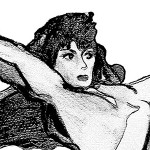Articles
The trouble with Women Pirates…
Women’s access to higher education: An overview (1860-1948)
The Married Women’s Property Acts (UK, 1870, 1882 and 1893)
By Claire Jones These acts were a milestone along women’s route to equality. The legal position of married women for most of the nineteenth century was little short of that of a slave. (This was the way in which philosopher
Prostitution and the Contagious Diseases Acts (1864, 1866 and 1869)
By Claire Jones Overview The passing of the Contagious Diseases Acts, which stripped poor and working-class women of their rights, shocked many respectable middle class women and provoked a major campaign for repeal. The Acts were a legal embodiment of










